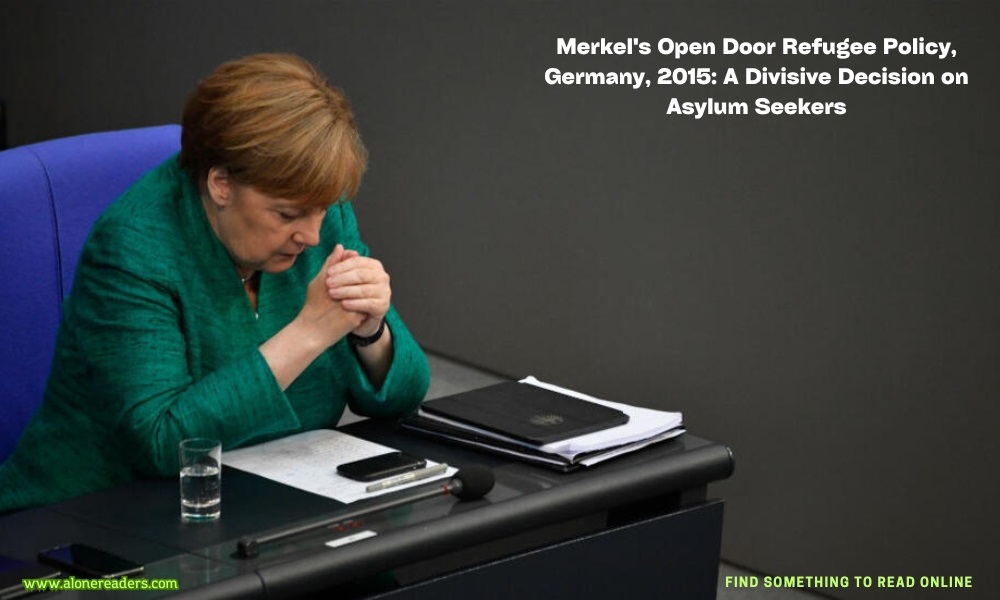
In 2015, Germany, under the leadership of Chancellor Angela Merkel, made a monumental decision to open its borders to a large influx of refugees, primarily fleeing from war-torn Syria, Afghanistan, and Iraq. This decision, often referred to as Merkel’s "Open Door" policy, marked a significant moment in Europe’s migrant crisis and continues to influence political, social, and economic discussions across the continent.
The origins of this policy can be traced back to the escalating conflicts in the Middle East and North Africa, which had displaced millions of people. As the crisis deepened, European countries faced increasing pressure to provide sanctuary to those fleeing violence and persecution. Germany’s response, spearheaded by Merkel, was notably generous. In a defining moment, Merkel declared, "Wir schaffen das" ("We can manage it"), underscoring her commitment to human rights and the humanitarian principles of the European Union.
The immediate impact of the policy was profound. In 2015 alone, Germany registered over one million asylum seekers, a dramatic increase from previous years. This open-door approach not only provided refuge to those in dire need but also positioned Germany as a leader in the EU’s response to the refugee crisis. However, the massive scale of the influx presented significant logistical challenges, from providing adequate housing and healthcare to integrating newcomers into the labor market and educational systems.
Public and political reactions in Germany and across Europe were deeply divided. Supporters praised Merkel for her moral leadership and compassion, arguing that Germany’s strong economy and declining birthrate could benefit from an increase in young workers. On the other hand, critics condemned the decision for various reasons, including security concerns, the strain on public services, and the fear of cultural dilution. This division was reflected in the rise of right-wing parties like the Alternative for Germany (AfD), which capitalized on anti-immigrant sentiments to gain significant political traction.
The long-term impacts of Merkel’s policy are complex and multifaceted. Economically, the initial cost of integrating refugees was substantial, with Germany spending billions on welfare, housing, and integration programs. However, many refugees have since started to contribute to the economy, filling critical labor shortages in various sectors. Socially, the policy has fostered a more diverse society but has also encountered challenges in cultural integration and public perception, particularly following incidents of violence involving refugees that have fueled public fears.
Legally and politically, Merkel’s decision tested the bounds of EU law regarding asylum and border control. It prompted heated debates over the Dublin Regulation, which mandates that asylum seekers must register in the first EU country they enter—a rule that was overwhelmed by the crisis. This led to calls for a more equitable distribution of asylum responsibilities across EU member states, a contentious issue that remains unresolved.
The policy also had significant diplomatic implications, influencing EU-Turkey relations, with Germany taking a leading role in negotiating the EU-Turkey deal to manage the flow of refugees in exchange for financial aid to Turkey.
In retrospect, Merkel's open-door policy was a watershed in global and European approaches to migration and asylum. It underscored the challenges of balancing national interests with international humanitarian obligations. The policy's legacy is a testament to the complexity of global migration and the profound human, political, and economic issues it entails.
In conclusion, Angela Merkel’s 2015 decision to open Germany's doors to refugees remains one of the most significant and controversial decisions in modern European history. It highlighted the challenges that come with large-scale humanitarian responses, the tensions between national security and human rights, and the ongoing debates about integration and multiculturalism. As Europe continues to grapple with migration issues, the lessons learned from Germany’s experience will undoubtedly continue to influence policies and perspectives on asylum seekers for years to come.